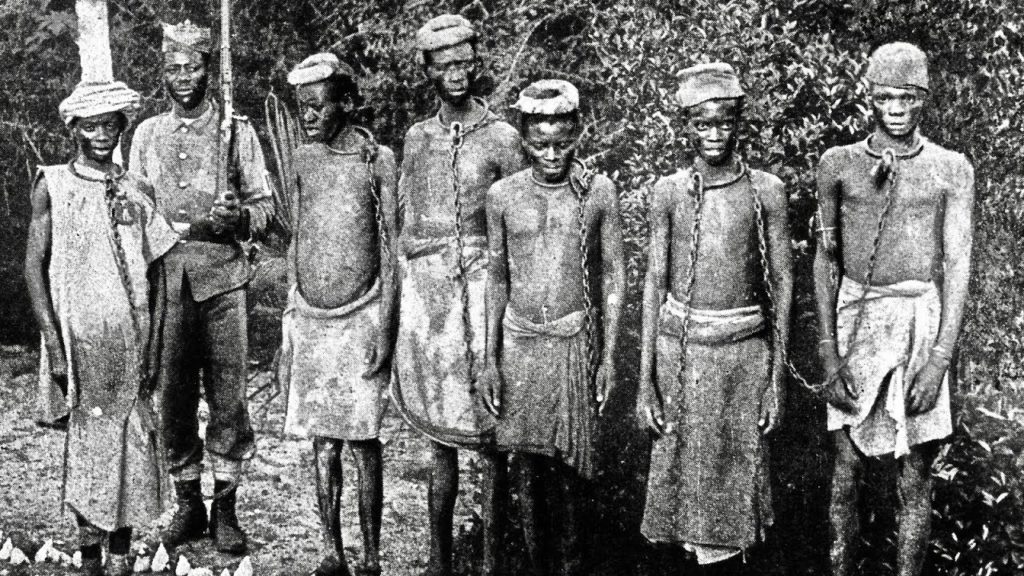What is Colonialism?
“The policy or practice of acquiring full or partial political control over another country, occupying it with settlers, and exploiting it economically.” By the year 1914, Europeans colonised a huge majority of the world’s nations.
https://www.nytimes.com/interactive/2019/08/19/magazine/history-slavery-smithsonian.html
The Slave Trade
The Atlantic slave trade or transatlantic slave trade involved the transportation by slave traders of enslaved African people, mainly to America. The slave trade regularly used the triangular trade route and its Middle Passage, and existed from the 16th to the 19th centuries.
The slave trade refers to the transatlantic trading patterns which were established as early as the mid-17th century. Trading ships would set sail from Europe with a cargo of manufactured goods to the west coast of Africa. When arriving, these goods would be traded over a number of weeks and months and captured people were provided by African traders. European traders found it easier to do business with African slave traders who raided settlements far away from the African coast and brought those young and healthy enough to the coast to be sold into slavery.

This was a huge problem for black people itself for many reasons; slave traders would take mainly men from Africa, leaving women and children to fend for themselves and unable to reproduce; hundreds and thousands of men would die from the unhygienic living space below the deck of the ships as well as the lack of food and many people would get sea sick and would have to lie in there own waste; head to toe with other people. Not many survived the voyage. With the men who did survive; the majority of those sold into slavery were destined to work on plantations in the Caribbean and the Americas, where huge areas of the American continent had been colonised by European countries. These plantations produced products such as sugar or tobacco, meant for consumption back in Europe.
The 13th Amendment, adopted on December 18, 1865, officially abolished slavery, but freed Black peoples’ status in the post-war South remained precarious, and significant challenges awaited during the Reconstruction period.
https://www.washingtonpost.com/history/2020/06/18/juneteenth-holiday-history-slavery-george-floyd/


